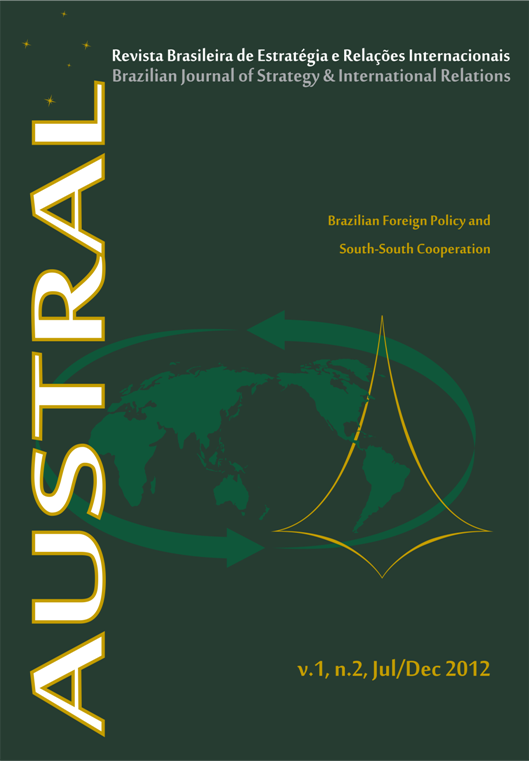COLONIAL GLOBALISATION TO POST COLONIAL GLOBALISATION: NON ALIGNMENT AND SOUTH-SOUTH COOPERATION
DOI:
https://doi.org/10.22456/2238-6912.30519Keywords:
South-South Cooperation, Non-Alignment, Nehru, Nehruvian ConsensusAbstract
In this paper, I shall argue, in brief, that the colonial legacy did not create positive “initial conditions” and that the path to development necessitated the ’unstructuring’ of colonialism. Second, I shall outline elements of the Nehruvian strategy for ‘unstructuring’ colonialism showing that the Nehruvian period rather than being wasted or leading to further dependency actually promoted independent development and created the structural conditions for rapid development in later years. The Nehruvian strategy, which I call the ‘Nehruvian consensus’ at independence, was a product of a particular historical conjuncture. ‘Non-alignment’ was one aspect of this consensus. The historical conjuncture was constituted by a number of factors such as the legacy of colonialism or the “initial conditions” at the point of independence, the nature of world capitalism and the global balance of power at that time.


